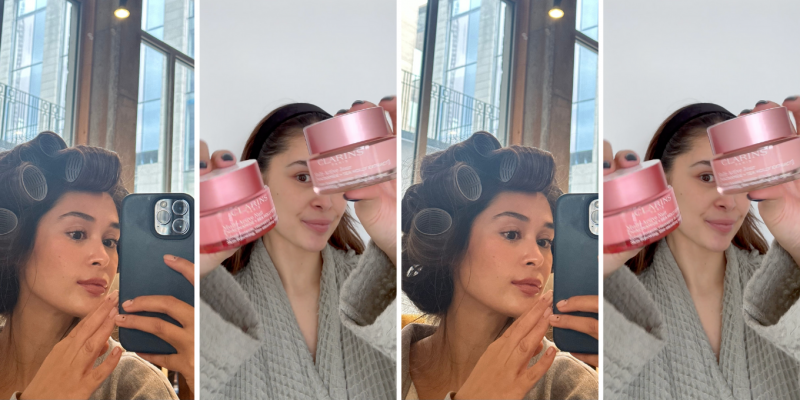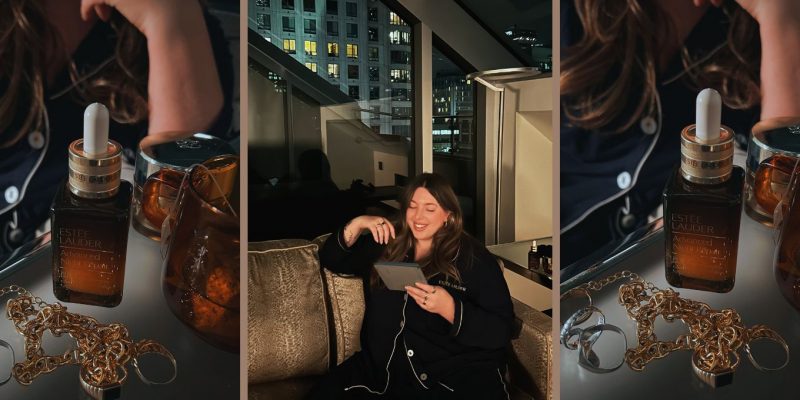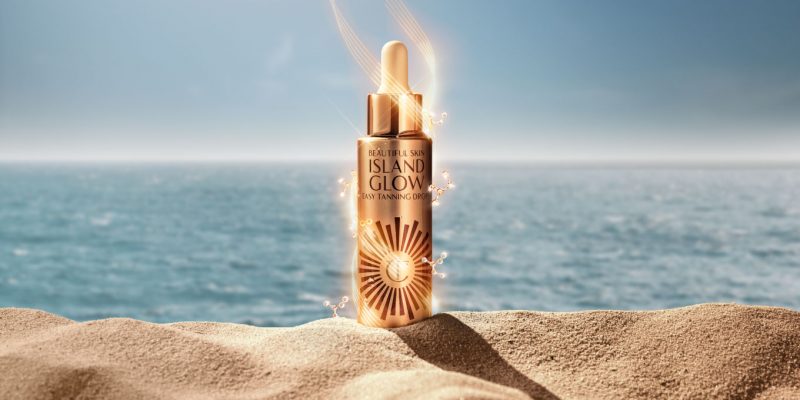Hair
Frizz Is No Longer the Antagonist in My Hair Story
"If frizz is seen as bad and conflated with all curly hair types and textures, then all textured hair is viewed as intrinsically wrong."
by : Sharine Taylor- Sep 17th, 2020
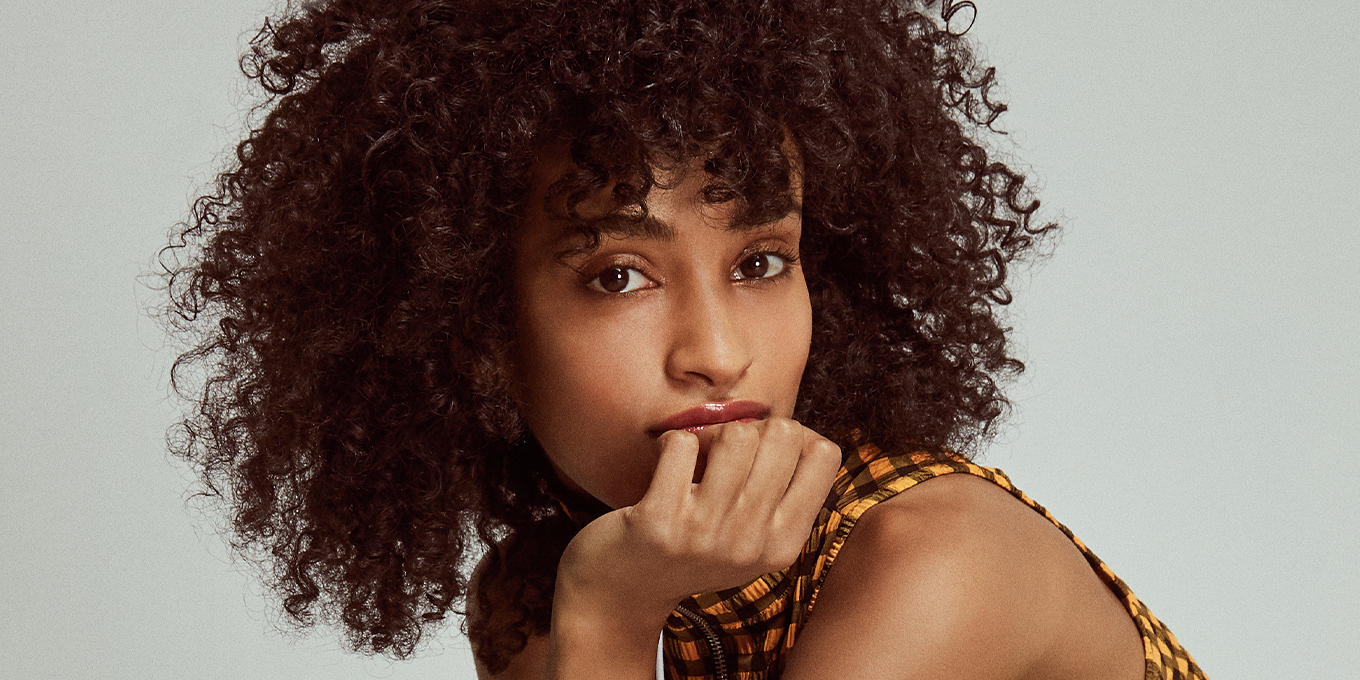
Brent Goldsmith
I can’t remember a time when I didn’t feel forced to control my frizz. Before I stopped relaxing my textured hair and did “the big chop,” my mother and grandmother always tried to make sure my styles were glassy smooth. They had good intentions; as Black women, they navigated a world in which their natural hair would be read as unkempt or unprofessional if it wasn’t always styled pristinely, so they protectively lobbied to keep my strands sleek.
For most people, frizz is viewed as an inconvenience, as something to be tamed. We’re constantly inundated with media messages about how to contain it, smooth it, control it, eliminate it; think of characters in coming-of-age classics, like The Princess Diaries’ Mia Thermopolis pre-makeover and The Wild Thornberrys’ Donnie, who make frizzy-haired folk seem wild or in need of a fix. The narrative is packed and parcelled to amplify our hair-related insecurities and send us running for the anti-frizz, no-frizz and zero-frizz products. (Sure, frothy hair has had its moments. Remember the ’80s? Big, teased hair was hailed as the ideal, but the next decade quickly crowned Jennifer Aniston as It girl after the debut of her perfect pin-straight hair on Friends.)
It seems, however, that we’re now at the edge of a new frontier that champions radical self-love, and fresh hair-care brands are emerging out of this change-hungry climate with the aim of destigmatizing frizz and encouraging people to accept their natural textures. (Because, although marketed as a nuisance, frizz is nothing if not natural; it’s simply the product of dry strands swelling as they absorb moisture from the air. And ironically, the measures women take to tame their hair – processing it, perming it, straightening it – often lead to dryness and damage, engendering more dreaded frizz.)
“For most people, frizz is viewed as an inconvenience, as something to be tamed.”
Australia-based hair-care line Bread is leading the conversation. Recently picked up by Sephora, the brand was founded last year by entrepreneur Maeva Heim because she wanted to “create hair basics for not-so-basic hair.” Mindful of Black women like herself who were burdened with product-heavy routines designed to achieve perfectly coiled curls, she intended to bring forgotten hair textures – essentially from the moderately coiled 3A curls to the tight 4C spirals – into the fold. Beyond that, she wanted to shift the perception about who gets to “embrace lazy-girl hair.”
Take the messy bun – the modern epitome of the effortless I-woke-up-like- this style – for example; you have to consider how many people actually have the hair texture to pull the look off without being side-eyed. Wash-and-go styles are quick fixes for busy women who could benefit from a little efficiency, but with textured hair, frizz creeps in after that first day – or even the first hour – sidelining even the most intentionally created bun into an exercise in self-consciousness and an extension of the ongoing project to demonize kinky hair.
Natasha Sheppard and Rowan McAnoy, the co-owners of Canada-based CurlShoppe, were similarly inspired by their journeys toward accepting their hair textures. Sheppard founded the brand in 2015, and McAnoy joined the following year. Shortly after, they dropped their debut (and still massively popular) Coconut Is Everything collection, which embodies an inclusive ethos, offering products for all hair types. “When I was growing up, there were times when people described my hair as frizzy even though it was curly,” says McAnoy about pejorative views of her hair. “I think some people with straight hair just see curls as frizz. Frizz is a part of curls, but frizz does not equal curl.”
“If frizz is seen as bad and conflated with all curly hair types and textures, then all textured hair is viewed as intrinsically wrong. ”
The differentiation, though seemingly small, is fundamental. If frizz is seen as bad and conflated with all curly hair types and textures, then all textured hair is viewed as intrinsically wrong, which has material consequences. “My hair is thick, and even if I style it – braid out, twist out – it always results in a ’fro,” says Sheppard. “When your hair is curly, there’s pressure for it to always look ‘perfect’ and tame – especially in the workplace – and that can be triggering.”
As new brands start to clap back at the standardized beauty ideals that prize a sleek, silky archetype, women who have always been unfairly told to control their frizz are finally seeing themselves reflected back with grace and respect. This shift will only improve the relationship we have with ourselves. Frizzy hair, it turns out, may just be the most unexpected vehicle on the journey toward self-love, despite all the signs that point in the opposite direction. “We strive to embrace the things that could be seen as negative and turn them into positives,” says Sheppard. “As long as you love your curly hair, that’s what matters.” As McAnoy says succinctly: “Embrace thy frizz.”
This article originally appeared in the October 2020 issue of ELLE Canada, available on newsstands across Canada and on Apple News+. Subscribe here.
READ MORE:
How To Keep Black Hair Healthy While Working Out
Is Regularly Exfoliating Your Scalp the Answer to Healthy, Shiny Hair?
Newsletter
Join our mailing list for the latest and biggest in fashion trends, beauty, culture and celebrity.
Read Next
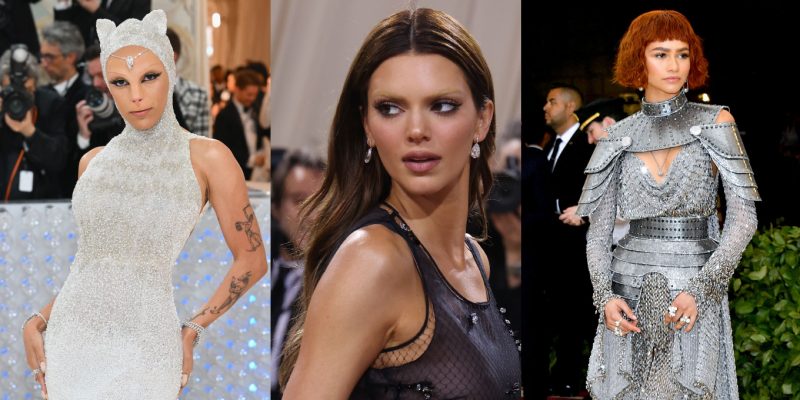
Beauty
The Best Met Gala Beauty Looks Of All Time
From Taylor Swift's 'Bleachella' era to Rihanna's iconic 2011 braids, meet the best beauty moments in Met Gala history.
by : Katie Withington- Apr 26th, 2024

Culture
Benny Blanco Says He Fell in Love With Selena Gomez Without ‘Even Noticing’ It
Allow Benny Blanco to tell the straight-from-a-rom-com story of how he realized his feelings for his girlfriend and longtime friend.
by : Alyssa Bailey- Apr 26th, 2024

Beauty
Tested and Approved: Your New Hydrating Skincare BFF
This new product has all of your skin’s thirst-quenching needs covered.
by : ELLE Canada- Apr 17th, 2024

